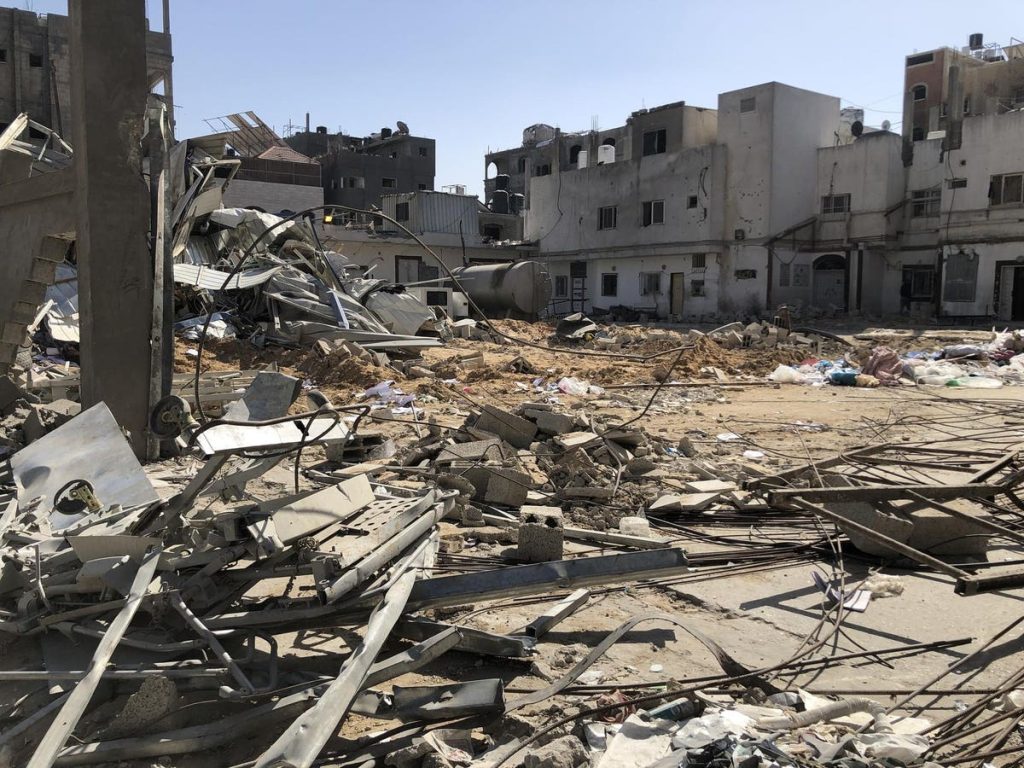Gaza’s Healthcare System Teeters on the Brink of Collapse Amidst Ongoing Conflict
The United Nations Security Council convened on January 3, 2025, to address the dire humanitarian crisis unfolding in Gaza, where the healthcare system is on the verge of total collapse. Dr. Rik Peeperkorn, the World Health Organization (WHO) representative for the West Bank and Gaza, painted a grim picture of hospitals transformed into battlegrounds, depriving civilians of essential medical care. A mere 16 out of 36 hospitals remain partially operational, struggling to cope with the overwhelming demand with a drastically reduced bed capacity of just 1,822. The systematic dismantling of Gaza’s health infrastructure has left the population vulnerable and without access to life-saving services.
The UN High Commissioner for Human Rights, Volker Türk, echoed these concerns, denouncing the destruction of hospitals as a "human rights catastrophe" unfolding before the world’s eyes. The Office of the High Commissioner for Human Rights (OHCHR) has documented at least 136 strikes on 27 hospitals and 12 other medical facilities in Gaza. These attacks have resulted in the deaths and injuries of numerous medical professionals and civilians, further crippling the already fragile healthcare system. The recent attacks on Kamal Adwan Hospital, the last functioning hospital in North Gaza, exemplify the devastating pattern of attacks documented in a recent OHCHR report. Over 1,050 medical professionals have lost their lives in the conflict, highlighting the immense human cost of this crisis.
The OHCHR report, released on December 31, 2024, reveals the devastating consequences of the limited healthcare access for those suffering from trauma injuries. The report, covering the period from October 7, 2023, to June 30, 2024, predates the most recent attacks on Kamal Adwan Hospital and the closure of the Indonesian Hospital due to lack of essential resources. It describes a heart-wrenching reality where individuals die waiting for hospitalization or treatment. Even those fortunate enough to receive critical care face inadequate facilities and premature discharge due to space constraints. The report further underscores the impact on patients with non-fatal conditions, potentially turning them fatal due to the lack of appropriate care.
Pregnant women are particularly vulnerable in this crisis, facing grave risks due to limited access to pre and postnatal care. The report highlights instances of newborn deaths resulting from mothers’ inability to access necessary check-ups or reach medical facilities for childbirth. Patients with chronic diseases, including kidney failure, hypertension, diabetes, heart disease, and cancer, are also facing life-threatening situations due to interrupted treatments. The report paints a stark picture of a healthcare system buckling under the strain of conflict, leaving the most vulnerable segments of the population at risk.
The U.N. High Commissioner for Human Rights emphasized the paramount importance of protecting hospitals during warfare, calling for independent, thorough, and transparent investigations into all attacks on healthcare infrastructure and personnel. He stressed the need for accountability and respect for international humanitarian law, which mandates the protection of medical facilities and personnel in conflict zones. The international community must ensure that perpetrators of these attacks are held responsible for their actions.
Responding to the reports, Brett Jonathan Miller, Israel’s Deputy Permanent Representative to the United Nations, highlighted the recent operation conducted by the Israel Defense Forces, which resulted in the apprehension of over 240 alleged terrorists, including individuals involved in the October 7th massacre. He also mentioned the arrest of a hospital director suspected of being a Hamas operative, and alleged that hundreds of Hamas and Islamic Jihad members were hiding within Kamal Adwan Hospital. This claim underscores the complexities and contested narratives surrounding the conflict and the targeting of medical facilities.
The catastrophic state of Gaza’s healthcare system demands immediate and decisive action from the international community. While investigations into attacks on healthcare facilities are crucial for accountability, restoring access to medical care for the Palestinian population must be the utmost priority. The international community must work together to ensure the provision of essential medical supplies, equipment, and personnel to address the overwhelming health crisis in Gaza. Failure to act swiftly will result in further preventable deaths and suffering, exacerbating the already dire humanitarian situation. The world cannot stand idly by while Gaza’s healthcare system crumbles, leaving its population vulnerable and without access to the most basic human right – the right to health. The urgent need for a cessation of hostilities and a renewed focus on humanitarian aid is undeniable if we are to prevent further tragedy and loss of life.


